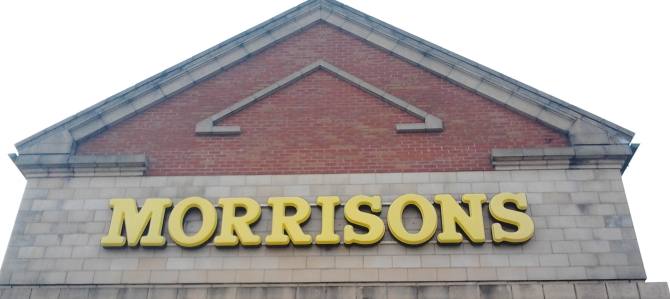The supermarket price war continues to rage on in the UK, with retailers Tesco, Asda, Morrison’s and Sainsbury’s lowering prices consistently in a bid to compete with imported discounters like Aldi and Lidl. However, new industry data has revealed that this initiative is in fact having a damaging impact upon overall food sales, with the category having declined for the first time in at least six years.

According to the British Retail Consortium (BRC), total food sales dropped by 0.2 per cent during the past quarter when compared to the same period one year ago. Excluding distortions caused by the placement of the Easter bank holiday, this is the first drop in total food sales since the BRC/KPMG Monthly Sales Monitor was launched in 2008.
Head of retail at KPMG, David McCorquodale, is concerned that the fall in food sales will have an impact upon the recovery of the wider retail industry.
He says; “While non-food retailers are seeing steady sales growth, the grocers appear locked in a race to the bottom, imposing price cut after price cut to maintain their sales volumes.
“This price war is hindering the retail sector’s overall recovery, which without the effects of these cuts would have seen like for like sales growth outpace inflation over the last quarter.”
Mr McCorquodale is right to be concerned, as the data indicated that like for like sales growth on both a food and non-food basis amounted to only 0.5 per cent in May compared to the 1.8 per cent achieved during the same month last year. Furthermore, this marks a disappointing drop from the 4.2 per cent growth recorded in April and dampens the success of non-food retailers, who enjoyed a rise in sales of more than 4 per cent in May.
By dropping prices in an attempt to lift sales volumes, retailers are causing untold damages to their revenues and heavily risking issues in their bottom lines. In fact, this could be a contributory factor to Tesco’s worst sales figures in 40 years being posted last week, and analysts are predicting that Sainsbury’s is set to follow suit with a report detailing a drop in sales expected later this week.
Fortunately, the BRC revealed that another struggling category in the retail industry – clothing – has begun to see a significant turnaround in fortune. During May, clothing sales grew at the fastest pace for several years.
Director general of the BRC, Helen Dickinson, says; “Customers took advantage of great summer fashion ranges and clothing sales had their best results since December 2011, performing better than any other category.
“There is also strong momentum in big ticket sales such as consoles and televisions as customers feel confident enough in the economy to make purchases that had been on hold, waiting for economic recovery.”
With other areas performing well, the impetus is now on grocers to lift sales in order to prevent hindering recovery. Yet with the supermarket sector remaining one of the most competitive in British industry as a whole, the question is how the Big Four can reverse this worrying trend.
How do you think supermarkets could encourage consumer spending without dropping prices?
Previous Post
New Coventry Base for German Car Parts Supplier